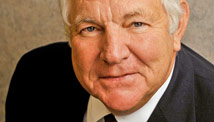March 2, 2011 8:00 p.m. EST

STORY HIGHLIGHTS
- William Bennett: Budget battles that challenge unions make it seem that U.S. is anti-teacher
- On contrary, he says, Americans value teachers; they think best should be rewarded
- Unions resist "merit pay" programs; public criticizes this, not teachers, he says
- Bennett: Studies tie low performing teachers-students; incentives could change this
RELATED TOPICS
Editor's note: CNN contributor William J. Bennett is the Washington fellow of the Claremont Institute. He was U.S. secretary of education from 1985 to 1988 and was director of the Office of National Drug Control Policy under President George H.W. Bush.
(CNN) -- As governors have looked for savings through union concessions, the budget debates in Wisconsin and other states have inspired a national discussion about the teaching profession. During one recent panel I was on for CNN, someone asked: How is it that teachers have become "public enemy number one?"The truth is that few people -- left or right -- who are seeking education reforms think of teachers as the enemy. Indeed, teaching is considered one of the most honorable professions in America, and for at least the past 15 years, most proponents of education reform agree that better teachers should, in fact, be paid more; that great teachers should be rewarded.
This very idea of merit pay, though, is one of the reforms the teachers' unions oppose. For this opposition -- and their opposition to many other reform efforts -- it is teachers' unions and their leaders who are criticized by the public and the reform movement, not the teachers themselves.
There is an inescapable reason why Americans care about this: the very sorry state of our education system as a whole. For the nearly $550 billion dollars America spends on public education at the elementary and secondary school levels each year, the results are pathetic.
In the most recent year for which numbers are available, the National Assessment of Educational Progress found that 40% of our nation's high school seniors scored below basic in science; 36% score below basic in math and 26% score below basic in reading. In American history, high school seniors score even worse, with more than 50% scoring below basic.
"Below basic" is defined by the National Assessment of Educational Progress reports as failing to meet "partial mastery of prerequisite knowledge and skills that are fundamental for proficient work" at grade level. It is effectively a failing grade.
There are a lot of factors that lead to these scores. But most reformers agree that an effective teacher in the classroom can make tremendous differences in educational outcomes. As Bill Gates recently pointed out, "the single most decisive factor in student achievement is excellent teaching."
Stories about teacher effectiveness are receiving more and more attention in the popular press, but let's take just two concrete examples: According to one widely cited 1996 study, if you take an 8-year-old student performing at the 50th percentile and give him a low-performing teacher, he will regress to the 37th percentile in three years. Give him a high-performing teacher, and he will succeed to the 90th percentile in the same amount of time -- a swing of 53 percentage points.
Most of our nation's schoolteachers do a very good job, if not a great job. But the low performers drag down the rest of our system.
According to an analysis by Stanford economist Eric Hanushek, if you replaced the lowest-performing teachers in our country (roughly 5% to 10% of the teaching work force) with just average performing teachers, America's students as a whole would rise from the bottom of the performance ladder on international tests to a Top 10 ranking. What would this mean for our GDP, by the way? Tens of trillions of dollars.
While there are many ongoing discussions about the best way to assess teacher performance, and some are better than others, most people in any given school already know who is, and who is not, a good teacher.
But union leadership has long opposed evaluations that could create the incentives to attract and keep the good and the great.
Teachers are professionals, some of the most important in America. We should treat them as most professionals in America are treated: incentivize effort and reward excellence. It is quite obvious to all, save those invested in the status quo, that the outcomes for our children, and our country, demand it.
No comments:
Post a Comment